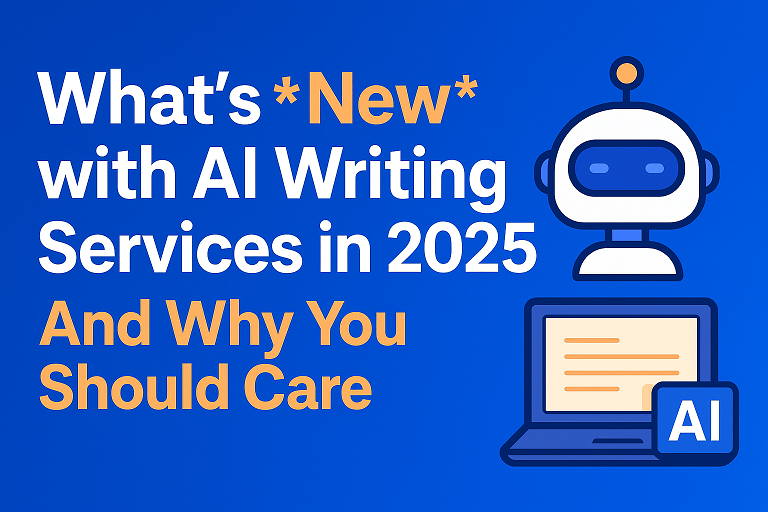Diabetes is one of the most pervasive chronic diseases globally, affecting over 500 million people as of 2023. With the rising prevalence of this condition due to lifestyle changes, obesity, and aging populations, combating diabetes has become a critical public health priority. Enter Artificial Intelligence (AI), a technological marvel that is transforming industries across the globe. But can AI help fight diabetes? The answer is a resounding yes. From early diagnosis and personalized treatments to dietary guidance and predictive analytics, AI is revolutionizing diabetes management and offering hope for millions worldwide.
This article explores how Can AI help fight diabetes and is being utilized to fight diabetes, its potential benefits, and the challenges ahead.
Understanding Diabetes: The Global Challenge
What Is Diabetes?
Diabetes is a chronic condition characterized by high levels of blood sugar (glucose) due to either the body’s inability to produce insulin (Type 1 diabetes) or an ineffective use of insulin (Type 2 diabetes). There is also gestational diabetes, which occurs during pregnancy. Uncontrolled diabetes can lead to severe complications, including heart disease, kidney failure, vision loss, and nerve damage.
Why Fighting Diabetes Is Essential
- Rising Prevalence: According to the International Diabetes Federation (IDF), diabetes cases are expected to exceed 640 million by 2045.
- Economic Burden: Diabetes-related healthcare costs amount to hundreds of billions of dollars annually.
- Complications: Poorly managed diabetes leads to a higher risk of life-threatening complications.
These challenges make it essential to explore innovative solutions like AI to combat this growing epidemic.
The Role of AI in Fighting Diabetes
AI has made significant strides in healthcare, and its applications in diabetes management are particularly noteworthy. Here are the primary ways AI is helping in the fight against diabetes:
1. Early Detection and Diagnosis
One of the critical challenges in managing diabetes is diagnosing it early. AI tools are now being used to:
- Analyze Medical Data: Machine learning algorithms analyze electronic health records (EHRs), lab results, and patient history to identify patterns indicative of prediabetes or undiagnosed diabetes.
- Screening for Retinopathy: AI-powered tools like Google’s DeepMind analyze retinal scans to detect diabetic retinopathy, a common diabetes complication, with high accuracy.
- Prediction Models: AI systems predict an individual’s risk of developing diabetes based on lifestyle, genetics, and medical history.
Real-World Example
A study by Verily (an Alphabet company) demonstrated how AI could use retinal scans to detect early signs of diabetes-related conditions with over 90% accuracy.
2. Continuous Glucose Monitoring (CGM)
Continuous Glucose Monitoring systems are transforming diabetes management by providing real-time blood sugar data. AI enhances these systems by:
- Trend Prediction: Algorithms predict glucose trends, alerting patients to potential highs or lows before they occur.
- Behavior Analysis: AI analyzes patterns in blood sugar data and correlates them with food intake, activity levels, and stress.
- Personalized Recommendations: AI-powered apps provide tailored advice based on CGM data to optimize glucose control.
Example Tools
- Dexcom G6/G7: Combines AI with CGM to offer predictive alerts.
- Freestyle Libre: Uses AI for advanced glucose trend analysis.
3. AI-Powered Insulin Delivery Systems
Managing insulin levels is a critical aspect of diabetes care. AI is powering insulin delivery systems that:
- Automate Insulin Dosing: Artificial Pancreas systems, like the Medtronic MiniMed 780G, use AI to deliver the right amount of insulin automatically.
- Closed-Loop Systems: These combine CGMs with insulin pumps, controlled by AI algorithms, for precise glucose regulation.
- Adaptive Learning: The systems learn from the user’s data over time, improving insulin delivery accuracy.
4. Personalized Treatment Plans
AI excels at creating personalized treatment plans by:
- Analyzing Data: AI processes vast amounts of patient data, including genetics, lifestyle, and medical history.
- Tailored Recommendations: Tools like DreaMed Advisor Pro recommend personalized insulin therapy adjustments.
- Virtual Health Coaches: AI-powered apps like Lark provide 24/7 support, offering lifestyle and medication guidance tailored to each individual.
5. Dietary Guidance and Carb Counting
Proper nutrition is critical for managing diabetes. AI tools assist by:
- Meal Recommendations: Apps like Foodvisor use computer vision to analyze meal photos and provide nutritional insights.
- Carb Counting: AI-powered calculators ensure accurate carbohydrate tracking.
- Custom Diet Plans: Personalized dietary suggestions optimize glucose levels and overall health.
6. Predictive Analytics for Diabetes Complications
AI helps predict and prevent complications by:
- Risk Assessment: AI models assess the risk of conditions like diabetic retinopathy, neuropathy, and cardiovascular disease.
- Preventive Action: Alerts healthcare providers and patients to take early preventive measures.
- Remote Monitoring: Telehealth platforms use AI to monitor patients remotely and identify warning signs.
Example
IBM Watson Health uses AI to predict the likelihood of complications based on patient data, enabling early interventions.
7. Behavioral and Lifestyle Support
AI-driven platforms encourage healthy habits by:
- Behavioral Insights: Tools like Sweetch analyze user behavior to promote healthier choices.
- Gamification: AI-powered apps make managing diabetes engaging through rewards and challenges.
- Habit Tracking: Continuous monitoring encourages adherence to healthy routines.
8. AI in Diabetes Research
AI accelerates diabetes research by:
- Drug Development: AI identifies potential drug candidates faster and more cost-effectively.
- Clinical Trials: Machine learning optimizes trial designs and participant selection.
- Genetic Analysis: AI analyzes genetic data to uncover new insights into diabetes causes and treatment.
Breakthrough
AI-assisted research at DeepMind is exploring the genetic basis of Type 1 diabetes, paving the way for innovative treatments.
9. Telemedicine and Remote Care
AI-powered telemedicine platforms are revolutionizing diabetes care by:
- Virtual Consultations: Patients can connect with specialists remotely.
- Remote Monitoring: Devices and apps track glucose levels and share data with healthcare providers.
- Proactive Interventions: AI alerts clinicians to intervene when necessary.
10. Improving Access to Care
AI is bridging gaps in diabetes care by:
- Scaling Expertise: AI tools enable non-specialist clinicians to deliver high-quality diabetes care.
- Affordable Solutions: AI-powered apps and devices lower the cost of diabetes management.
- Language Accessibility: Tools like Babylon Health offer multilingual support, making care accessible to diverse populations.
Benefits of Using AI in Diabetes Management
1. Improved Accuracy
AI reduces errors in diagnosis, insulin dosing, and lifestyle recommendations.
2. Personalization
AI tailors treatment plans and recommendations to individual needs.
3. Proactive Management
By predicting glucose trends and complications, AI enables early intervention.
4. Convenience
AI tools simplify diabetes management, reducing the burden on patients.
5. Cost Savings
Automation and early detection lower healthcare costs by preventing complications.
Challenges and Limitations
1. Data Privacy Concerns
Storing and analyzing sensitive health data raises privacy and security issues.
2. Accessibility
AI tools may not be affordable or accessible to underserved populations.
3. Algorithm Bias
AI models may not perform equally well across diverse populations due to biased training data.
4. Integration with Healthcare Systems
Seamless integration of AI tools into existing healthcare systems remains a challenge.
The Future of AI in Fighting Diabetes
The future of AI in diabetes management looks promising, with advancements in:
- Non-Invasive Glucose Monitoring: AI-powered wearables that monitor glucose levels without needles.
- Predictive Medicine: Advanced algorithms predicting disease onset and progression.
- Enhanced Patient Engagement: AI tools becoming more intuitive and user-friendly.
- Global Impact: Expanding AI’s reach to underserved communities worldwide.
Conclusion
AI is undoubtedly a game-changer in the fight against diabetes. From early diagnosis and personalized treatment to dietary guidance and predictive analytics, AI offers a comprehensive approach to managing this complex condition. While challenges like data privacy and accessibility remain, the potential benefits far outweigh the obstacles. As AI technology continues to evolve, it promises to transform diabetes care, offering hope and improved quality of life for millions around the world.
By embracing AI-powered solutions, we can take a significant step forward in combating the diabetes epidemic, one algorithm at a time.
References and Further Reading
- International Diabetes Federation (IDF): Facts and figures on the global diabetes epidemic. Visit their website.
- Google DeepMind and Diabetic Retinopathy: AI’s role in diagnosing eye complications related to diabetes. Learn more.
- Dexcom G6 CGM System: Information about AI-enhanced continuous glucose monitoring. Product page.
- Medtronic MiniMed 780G: AI-powered insulin delivery systems. Learn more here.
- Verily’s AI Research: AI-driven tools for diabetes care and research. Explore Verily.
- Lark Diabetes Prevention Program: AI-powered virtual coaching for diabetes prevention. Learn more.
- IBM Watson Health: Predictive analytics and diabetes risk management. Discover more.
- Freestyle Libre: Real-time glucose monitoring powered by AI. Product information.
- Sweetch: AI-based behavior modification for diabetes management. Visit their website.
- World Health Organization (WHO): Comprehensive insights into diabetes and its global impact. Visit WHO Diabetes page.
- Virta Health: AI-based diabetes reversal programs through lifestyle changes. Read more here.
- Diabetes Research from DeepMind: Efforts to understand the genetic basis of Type 1 diabetes. Explore the research.Join the chat




